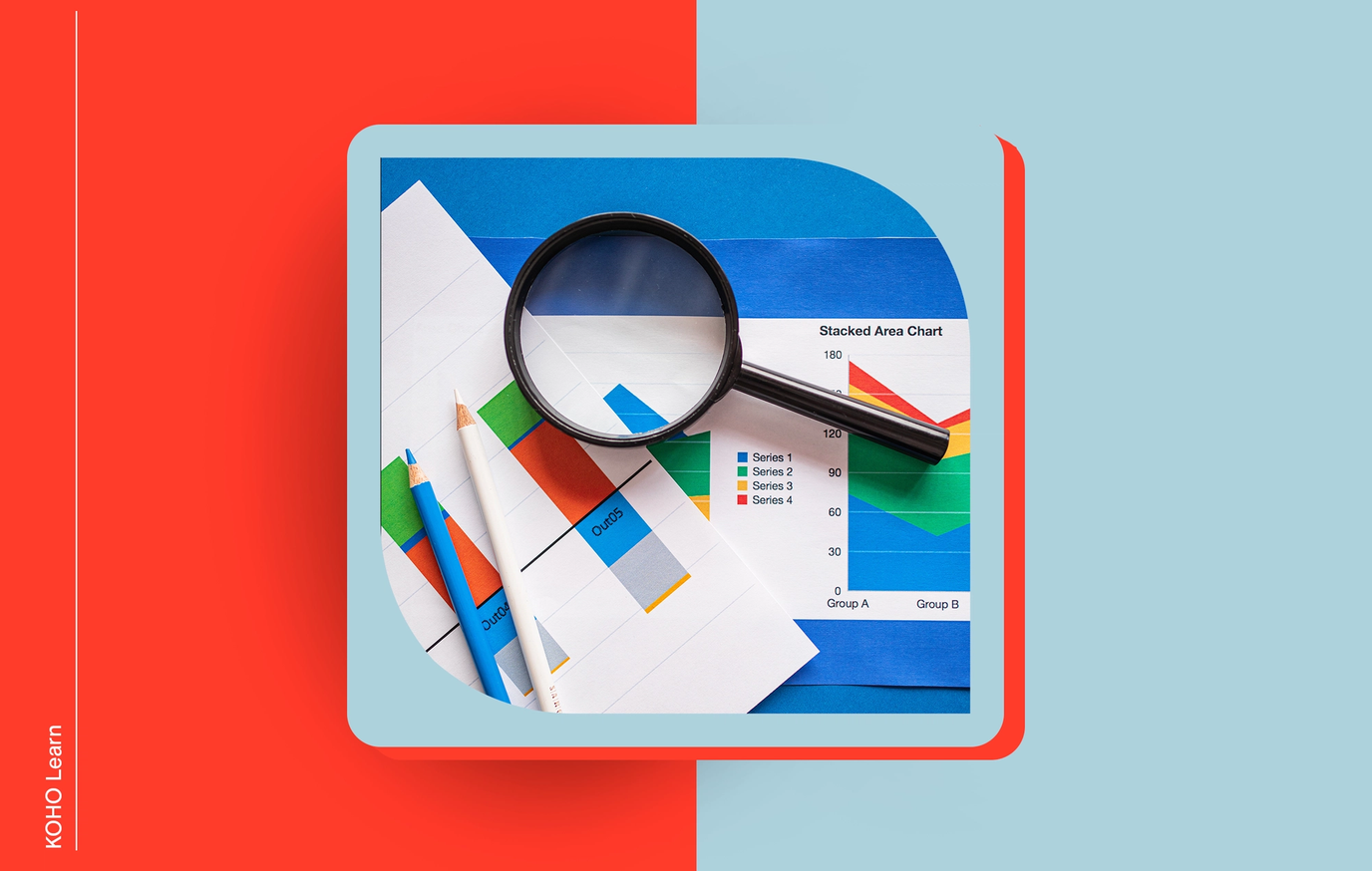
Steering through the maze of tax duties can be a bit overwhelming (even for seasoned professionals), particularly when trying to grasp the inner workings of the Canada Revenue Agency (CRA).
It's perfectly natural to wonder whether or not the Canada Revenue Agency (CRA) will audit your bank account, and it’s best to stay ahead and well-informed. While the concept of a CRA audit is part and parcel of upholding tax laws in Canada, for many, it carries an air of mystery.
It’s vital to get acquainted with what triggers these audits and how they work. After all, dealing with taxes goes beyond just ticking off requirements. It’s about having an active hand in maintaining one’s financial well-being under the keen scrutiny of the Canada Revenue Agency.
Decoding the Audit Process: Inside the Approach of the Canada Revenue Agency
Understanding the intricacies of CRA audits offers a lens through which we can view the broader picture of financial management and tax compliance. These audits are a fundamental aspect of maintaining the integrity of Canada's tax system.
Let's delve into what usually triggers a CRA audit and the steps involved, unravelling the layers to provide clarity and peace of mind.
What Triggers a CRA Audit?
The journey into a CRA audit often begins with a simple discrepancy or anomaly that catches the eye of tax specialists.
Sometimes, there’s a mismatch between reported income on your tax returns and the information available to the Canada Revenue Agency through third-party sources, such as financial institutions.
In other instances, repeated losses on self-employed business income or significant changes in expenses can raise flags. Essentially, any deviation from the norm that suggests a misrepresentation of financial facts could be the spark that ignites the CRA's interest.
How the CRA Conducts Audits
Once a file is flagged, the audit process commences, marked by a thorough examination of bank account transactions, financial records, and both personal and business records.
CRA auditors are looking for evidence of tax evasion and piecing together a complete financial picture.
An audit may involve requests for specific documents, such as bank statements, mortgage documents, and even credit card statements, to verify the accuracy of the tax filings submitted.
The process is meticulous, with evidence serving as the puzzle pieces in the CRA's quest to ensure tax laws are followed to the letter.
During this time, many find themselves navigating the complexities of tax season in Canada with an added layer of scrutiny.
The Role of Bank Accounts in CRA Audits
When the Canada Revenue Agency (CRA) conducts an audit, bank accounts often emerge as focal points of investigation.
Although it may feel like it, this shouldn’t be viewed as just about peeking into your financial life. Rather, it’s a structured approach to uncovering the truth behind the numbers.
Bank accounts, with their trail of transactions, can tell a story of financial behaviour, highlighting areas that might not align with the tax filings presented.
Let’s explore how and why the CRA puts bank accounts under the microscope, particularly with an eye out for unreported income and tax evasion.
Peering Into Bank Accounts: A Method to the Madness
Why is it that bank accounts draw such keen interest from the CRA? Is it the sheer volume of transactions, or is there more to this story?
Here are some of the reasons why your bank account is an attractive asset from the viewpoint of the CRA:
Transparency: Bank accounts offer a clear, chronological record of an individual's or business's financial activities.
Unreported Income: Regular deposits or transactions that don't match reported income can signal unreported earnings.
Tax Evasion Clues: Large, unexplained transfers or discrepancies between lifestyle and reported income might hint at evasion.
The Search for Unreported Income and Tax Evasion
The CRA's scrutiny of bank accounts is driven by the need to ensure everyone pays their fair share. Here’s how they go about it:
Analyzing Deposits: Auditors look at the nature and source of deposits to identify any income not reflected on tax returns.
Reviewing Transactions: Payments and transfers are scrutinized to reveal any undisclosed financial activities.
Comparing Lifestyle: Auditors may also consider whether the lifestyle indicated by spending patterns aligns with reported income.
What About Cryptocurrency?
As the financial landscape evolves, the Canada Revenue Agency (CRA) has adapted its audit strategies to include the burgeoning realm of cryptocurrency.
The digital nature of cryptocurrencies presents unique challenges and opportunities for both taxpayers and auditors. Understanding how these digital assets are treated in the context of CRA audits is crucial for anyone dabbling in the crypto space.
Cryptocurrencies are considered property for tax purposes, meaning transactions can trigger capital gains or losses that must be reported. The CRA's focus during audits includes:
Transaction Tracking: The CRA examines the records of cryptocurrencies' buying, selling, trading, and even mining activities to ensure that all taxable events are reported.
Identifying Unreported Income: Given the anonymity potential of cryptocurrencies, the CRA pays close attention to transactions that may not be immediately visible in traditional bank accounts.
Applying Existing Tax Laws: Despite the novel nature of cryptocurrencies, existing tax laws apply, requiring individuals to keep detailed records of their cryptocurrency transactions.
For taxpayers, the key to managing the audit risk associated with cryptocurrencies lies in meticulous record-keeping and a thorough understanding of Canada's cryptocurrency regulations. This knowledge helps you align with tax obligations and confidently navigate the audit process.
Personal and Business Records: What You Need to Know
Maintaining a comprehensive set of personal and business records is a cornerstone of financial health and tax compliance.
Under the watchful eyes of the CRA, these documents are the narrative of your financial journey, offering clarity and proof of your tax obligations.
Let's unpack why keeping accurate and complete records, from bank statements to mortgage documents, is so crucial, especially in the context of CRA audits.
The Backbone of Tax Compliance: Keeping Records
Your financial records are the backbone of tax compliance, providing a clear, undeniable picture of your financial status. This transparency is invaluable, not just for tax purposes but for making informed decisions about your financial future.
Accurate reporting is the linchpin of a healthy relationship with the CRA. Here's how different types of documents contribute to this accuracy:
Bank Statements and Credit Card Statements: These are pivotal in ensuring the accuracy of what you report to the CRA. They detail your financial transactions over the year, helping to substantiate income, expenses, and deductions claimed on your tax return.
Mortgage Documents and More: Mortgage documents, loan agreements, and other financial contracts play a crucial role. They provide evidence of your financial commitments and are essential for verifying interest deductions and other tax benefits.
The clarity that comes from well-maintained records cannot be overstated. A detailed financial history has many benefits, whether for personal satisfaction or preparing for a potential audit.
What about Freelancers and Foreign Income (Remote Work)?
For freelancers and entrepreneurs, navigating the tax landscape can be particularly challenging, given the fluid nature of income and expenses. Harnessing tax tips for freelancers can demystify the process, offering strategies to maintain impeccable records and ensure tax compliance.
Preventing Audit Red Flags
Steering clear of audit red flags requires attentiveness, knowledge, and the right practices. Understanding how to accurately report income and wisely use financial institutions can make all the difference.
Here, we'll discuss how you can ensure compliance and avoid the common pitfalls that might attract unwanted attention from the CRA.
Accurate Reporting of Cash Income
The foundation of tax compliance begins with the complete and honest reporting of all income, especially cash income, which might otherwise go unnoticed.
Don’t think of this as just about adhering to tax laws. It's about contributing to a transparent and equitable tax system. Reporting all income, no matter its form, ensures you're on solid ground, reducing the risk of discrepancies that could trigger an audit.
A crucial part of this process involves understanding your Notice of Assessment (NOA) for tax purposes, which summarizes your tax situation based on your reported income.
Making Smart Use of Banks
How you manage your accounts and transactions can reflect your financial integrity. Using financial institutions wisely means ensuring that all transactions, especially those involving cash deposits and withdrawals, are well-documented and justified.
This diligence not only aids in financial management but also serves as evidence of your commitment to tax compliance.
Considering Professional Assistance
Sometimes, the best way to ensure compliance is to seek professional advice. Hiring an accountant for tax purposes isn't just for businesses. Individuals can benefit from expert guidance on tax filings, deductions, and navigating complex tax situations, such as paying taxes in Canada or settling CERB repayments.
As you focus on maintaining transparency and compliance, consider also the role of financial health in your overall well-being. Learning how to build your credit with KOHO can be a proactive step towards managing your financial transparency and securing a stable financial future.
Remember, a well-maintained financial profile helps avoid audits and build a strong financial foundation.
Tools and Resources for Compliance and Tax Returns
Image: Piqsels
Ensuring tax compliance and preparing for an audit requires more than diligence and knowledge. They require the right tools and resources.
KOHO is a pivotal ally in this journey, offering an array of features designed to bolster your financial organization and ensure compliance with the CRA's requirements.
High-Interest Savings Account: A cornerstone for anyone looking to optimize their savings, KOHO’s high-interest savings account not only grows funds faster but also helps delineate personal from business transactions, a crucial aspect in audit readiness.
Plans for Spending and Saving: Tailored to foster financial discipline, these plans empower you to allocate funds wisely, ensuring that every dollar spent or saved aligns with your tax obligations and financial goals.
Cash advance: Provides a safety net, ensuring that inadvertent overdrafts don't lead to financial discrepancies in your personal or business records, which could be red flags for auditors.
For businesses striving to maintain pristine financial records and adhere to tax compliance, KOHO extends a helping hand.
Explore KOHO for businesses to uncover tools that not only assist in the financial organization but also pave the way for a smoother journey through tax season and beyond.
Conclusion
In navigating the complexities of the CRA's audit process, knowledge and compliance are your best navigational tools.
By understanding what triggers audits and employing diligent financial practices, you can sail through tax season with confidence.
Remember, staying informed and prepared is key to ensuring a smooth tax experience with the Canada Revenue Agency. Embrace the journey with clarity and foresight, and you'll find navigating Canada's tax waters to be a more manageable voyage.

About the author
Nick is a freelance writer and entrepreneur with a particular interest in business finance. He's been featured in publications like Popular Mechanics and Apple News
Read more about this author